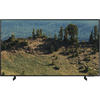A comparison of specs, key information, reviews, and best pricing from top retailers
Last updated -- hours ago | Report incorrect information
What we think

The PerfectRec TV team Learn more
Updated January 10, 2024·
The Samsung Q60C typically comes at a somewhat higher price than the Samsung AU8000. If a bright room performance is important for you, the Q60C has a slight edge and comes with a newer model year. However, if you're looking for better overall picture quality and gaming performance, the AU8000 could be a better fit. Note that both models might not perform at their best in dark rooms, with the AU8000 performing slightly worse than the Q60C in these conditions. Give Feedback
this description is based on the product variant with some specs and product variant with some specs. At the time of writing, the variant with some specs cost some dollars and the variant with some specs cost some dollars.
Advantages of the Samsung Q60C (LCD)
- Good for cartoons & animation
- Very good motion processing
Advantages of the Samsung AU8000 (LCD)
- Good for upscaling
- Good reflections
Key differences
Picture Quality
6.0

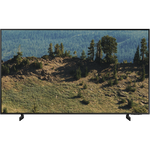
6.6
5.55/10
CONTRAST
6.71/10
7.3/10
COLOR VOLUME SCORE
6.3/10
LED
PANEL TYPE
LED
VA
PANEL SUB-TYPE
VA
The Samsung AU8000 (LCD) and Samsung Q60C (LCD) both have only fair picture quality, though the Samsung AU8000 (LCD) has somewhat better picture quality.
Cartoons & Animation
7.5


6.9
7.3/10
COLOR GAMUT SCORE
6.1/10
7.3/10
COLOR VOLUME SCORE
6.3/10
7.9/10
SDR BRIGHTNESS SCORE
7.1/10
7.8/10
COLORS OUT OF THE BOX SCORE
7.2/10
7.0/10
GRAY UNIFORMITY
6.8/10
The Samsung Q60C (LCD) is good for cartoons & animation, while the Samsung AU8000 (LCD) is only fair.
The Samsung Q60C has better out-of-the-box color performance and color gamut than the Samsung AU8000, which means it displays a wider range of colors and is more likely to provide vibrant and accurate colors for cartoons and animation without the need for calibration. While both TVs have similar SDR brightness and contrast, which are important for a bright room, the superior color performance of the Q60C makes it a preferable option for animated content.
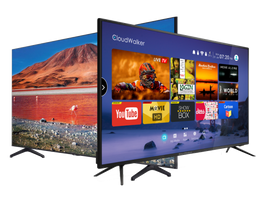
Let Us Help Find Your Perfect TV
Find your new TV
Key similarities
Movies & TV
5.5


5.9
5.55/10
CONTRAST
6.71/10
2.9/10
BLACK UNIFORMITY
6.9/10
6.6/10
UPSCALING
7.5/10
Yes
HDR10 SUPPORT
Yes
Yes
HDR10+ SUPPORT
Yes
No
DOLBY VISION SUPPORT
No
The Samsung AU8000 (LCD) and Samsung Q60C (LCD) are both poor for movies & TV.
The Samsung Q60C and Samsung AU8000 both exhibit limitations in contrast, black uniformity, and local dimming that are not optimal when watching movies or cinematic TV, affecting the depth of black levels and overall picture quality. The Q60C has particularly low black uniformity and poor local dimming which can lead to grayish blacks and lack of shadow detail, while the AU8000, despite slightly better black uniformity, still lacks effective contrast and local dimming, resulting in a less ideal viewing experience for dark scenes.
Sports
6.5


6.5
8.0/10
MOTION PROCESSING
6.0/10
60Hz
REFRESH RATE
60Hz
10.0/10
INPUT LAG SCORE
10.0/10
6.6/10
UPSCALING
7.5/10
7.9/10
SDR BRIGHTNESS SCORE
7.1/10
Yes
HLG SUPPORT
Yes
The Samsung AU8000 (LCD) and Samsung Q60C (LCD) are both only fair for sports.
The Samsung Q60C and Samsung AU8000 both have challenges in handling reflections and maintaining color accuracy at wide viewing angles, which can impact the quality of watching sports. However, the Q60C has a quicker response time and better motion processing compared to the AU8000, resulting in smoother action with less blur during fast-moving scenes.
Gaming
5.7


5.8
5.2/10
RESPONSE TIME SCORE
5.9/10
10.0/10
INPUT LAG SCORE
10.0/10
8.0/10
MOTION PROCESSING
6.0/10
30.0/100
GAMING LOCAL DIMMING
0.0/100
6.1/10
GAME HDR BRIGHTNESS SCORE
5.8/10
The Samsung AU8000 (LCD) and Samsung Q60C (LCD) are both poor for gaming.
The Samsung Q60C and the Samsung AU8000 both have a low response time, which can result in motion blur during fast-paced games, and while both have excellent input lag, making them responsive to gaming controls, the refresh rate is limited to 60Hz, which isn't ideal for high-frame-rate gaming that requires smoother motion.
News, Talk, & Other TV
6.8


6.7
7.9/10
SDR BRIGHTNESS SCORE
7.1/10
6.6/10
UPSCALING
7.5/10
The Samsung Q60C (LCD) and Samsung AU8000 (LCD) are both only fair for news, talk, & other TV.
The Samsung Q60C and the AU8000 both do a fair job displaying news and talk shows because their SDR brightness is good, making them suitable for well-lit environments, and their upscaling ability is good, which is critical for watching lower resolution content like regular TV programs. However, their performance is limited by their local dimming, contrast, and color gamut, which are less impressive, affecting the picture quality, especially in scenes with high contrast or diverse colors.
Bright Room
6.5


6.3
5.3/10
VIEWING ANGLE
5.5/10
7.9/10
SDR BRIGHTNESS SCORE
7.1/10
5.7/10
HDR BRIGHTNESS SCORE
5.7/10
6.3/10
REFLECTIONS SCORE
7.8/10
The Samsung Q60C (LCD) and Samsung AU8000 (LCD) are both only fair for bright room.
The Samsung Q60C and AU8000 both exhibit 'Good' SDR brightness which makes them suitable for viewing in bright rooms, but their performance in HDR brightness is marked as 'Poor,' limiting their full potential in displaying HDR content. Moreover, while the Q60C is described as having 'Fair' reflection handling, the AU8000 advances with 'Good' reflection handling, which indicates it might deal with ambient light reflections slightly better.
Cost
$459


$448
$200
$300
$400
$500
$600
$700
The Samsung Q60C (LCD) has a price of $459 and the Samsung AU8000 (LCD) costs $448.
Give feedback
We’re constantly working to improve.
How the Samsung Q60C (LCD) and the Samsung AU8000 (LCD) compare to other TVs
Spec Comparison
| Samsung Q60C (LCD) | Samsung AU8000 (LCD) |
GENERAL | |||
|---|---|---|---|
| Price | |||
$459 | $448 | ||
Brand | |||
Brand | Samsung | Samsung | |
Release Date | |||
Release Date | April 3, 2023 | March 2, 2021 | |
Full name | |||
Full name | QN50Q60C | UN50AU8000 | |
Screen Size | |||
Screen Size | 50" | 50" | |
Screen Resolution | |||
Screen Resolution | 4K | 4K | |
TV FEATURES | |||
|---|---|---|---|
Operating System | |||
Operating System | Tizen | Tizen | |
Sound Quality Score | |||
Sound Quality Score | 6.6/10 | 6/10 | |
NextGen Ready | |||
NextGen Ready | No | No | |
HDMI Ports | |||
HDMI Ports | 3 | 3 | |
Coax Ports | |||
Coax Ports | 1 | 1 | |
DISPLAY QUALITY SCORES | |||
|---|---|---|---|
Picture Quality Score | |||
Picture Quality Score | 6.1/10 | 6.6/10 | |
Bright Room Score | |||
Bright Room Score | 6.5/10 | 6.4/10 | |
Gaming Score | |||
Gaming Score | 5.7/10 | 5.8/10 | |
Movies & TV Score | |||
Movies & TV Score | 5.5/10 | 5.9/10 | |
Sports Score | |||
Sports Score | 6.5/10 | 6.5/10 | |
PHYSICAL | |||
|---|---|---|---|
Dimensions w/o Stand (H x W x D) | |||
Dimensions w/o Stand (H x W x D) | 25.4" x 44" x 1" | 25.4" x 44" x 1" | |
Dimensions with Stand (H x W) | |||
Dimensions with Stand (H x W) | 26.8" x 44" | 27" x 44" | |
Weight without Stand | |||
Weight without Stand | Unknown | 25.4 lbs | |
VESA Mount | |||
VESA Mount | 200 x 200 | 200 x 200 | |
DISPLAY | |||
|---|---|---|---|
Color Depth | |||
Color Depth | 10 bit | 10 bit | |
Black Frame Insertion | |||
Black Frame Insertion | Yes | Yes | |
Auto Low Latency Mode | |||
Auto Low Latency Mode | Yes | Yes | |
Contrast | |||
Contrast | 5.6/10 | 6.7/10 | |
Local Dimming | |||
Local Dimming | 4.1/10 | 2.5/10 | |
SOUND | |||
|---|---|---|---|
Speaker Setup | |||
Speaker Setup | 2.0 | 2.0 | |
Speaker Power | |||
Speaker Power | 20 W | 20 W | |
Dolby Atmos | |||
Dolby Atmos | Yes | Bypass only | |
DTS:X | |||
DTS:X | No | No | |
Shopping
Samsung AU8000 (LCD)
See more
Dig into reviews and images
USA Today
Michael Desjardin | April 2023
"To put it directly: you’d never see a mid-range 4K TV hitting this black levels half a decade ago. AU8000 plays the part of a higher-end TV thanks to its sleek design. If you’re upgrading to a smart TV for the first time, the software is a great way to dip your toes in the streaming water."
Get a great deal on the Samsung Q60C (LCD) or the Samsung AU8000 (LCD)
About Samsung
Samsung, a South Korean electronics manufacturer, holds the title of being the largest global TV vendor in terms of units sold. They offer a diverse lineup of TV products that cater to various budget ranges. A notable achievement in recent years is the development of Quantum Dots, a technology that enhances color reproduction, resulting in richer and more vibrant hues. Samsung TVs are well-regarded for their high manufacturing quality and user-friendly software, making them an excellent choice for consumers seeking an intuitive viewing experience.
Give feedback
We're constantly perfecting our model
TV guides you might be interested in
More comparisons for you
Compare Samsung Q60C (LCD) vs. LG UP7000 (LCD) VS
VS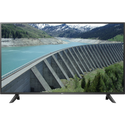


Compare Samsung Q60C (LCD) vs. TCL S435 (LCD) VS
VS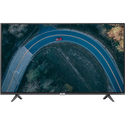


Compare Samsung Q60C (LCD) vs. Samsung CU7000 (LCD) VS
VS


Compare Samsung AU8000 (LCD) vs. TCL S555 (LCD)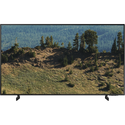 VS
VS


Compare Samsung AU8000 (LCD) vs. Samsung CU8000 (LCD) VS
VS


Compare Samsung AU8000 (LCD) vs. LG UR9000 (LCD) VS
VS


FAQs
FAQs about TVs
Why trust us
This information was produced and vetted by the PerfectRec TVs team. We are a product research and recommendation organization that meticulously reviews and evaluates the latest TV information and makes it digestible for you.
By the numbers
385
TVs evaluated
33,110
TVs stats compiled
21
Proprietary TVs ratings developed
167,430
Recommendations made
25,115
Consumer hours saved
About the TV team
Joe Golden, Ph.D
CEO and TVs Editor
Joe is an entrepreneur and lifelong electronics enthusiast with a Ph.D in Economics from the University of Michigan.
Jason Lew
Staff Expert & Software Engineer
Jason is a staff expert and software engineer that has been making laptop recommendations for 7 years and moderates one of the largest laptop subreddits.
Chandradeep Chowdhury
Staff Expert & Software Engineer
Chandradeep is a staff expert and software engineer and expert in televisions and monitors. He’s been making monitor recommendations for ten years.
Jaime Roldán
TVs Expert
Jaime is a Colombia-based TV expert. He is an electronics engineer with 8 years of experience in the telecom sector and has been making TV recommendations for 12 years.

